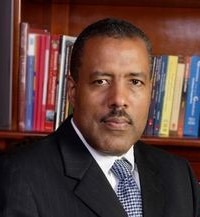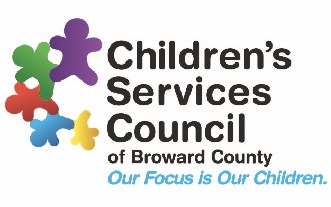Jamaican Diaspora movement in U.S. puts education at top of agenda


Washington, DC – During 2005, a range of key initiatives have emerged from the Jamaican Diaspora movement in the United States, which have been directed at transforming secondary education in Jamaica.
The new thrust, which is at the heart of the Jamaica Diaspora Foundation’s Northeastern Region education sector’s current activities, is predicated on the central theme of the Diaspora movement, which is to harness the broad expertise and the vast array of talent and resources of Jamaicans, in the interest of the country’s economic and social development.
The Foundation’s Education Sector, since its inception, has forged a close working relationship with the Ministry of Education, Youth and Culture, as well as the Embassy of Jamaica in Washington, in its quest to fashion a strategic approach to modernizing the island’s educational system and to assist non-traditional high schools, in particular.
With the inception of the Jamaica Diaspora Foundation in the aftermath of last year’s inaugural conference on the Jamaican Diaspora, a decision was taken by its leadership to establish a number of committees or ‘sectors’ which would focus on a number of key issues of significant importance to Jamaica, including areas such as health, investment promotion and facilitation, security and education.
Since its establishment, the Education Sector, under the leadership of noted Jamaican educator and Temple University professor, Dr. Trevor Sewell, has undertaken a comprehensive campaign aimed at mobilizing Jamaicans in the United States to aid the country’s educational advancement in a number of critical areas and, specifically, to identify, develop and promote long-term strategies to achieve educational excellence and to ensure that teachers and students alike become even greater stakeholders in the educational process.
Over the past year, the Education Sector has held meetings in the states of Massachusetts, Connecticut, New York, Pennsylvania, Maryland and Washington D.C., which led to the forging of a consensus resulting in the adoption of a plan of action and also a framework for its activities. A decision was also taken that the committee would inform current educational policy in the island, through the establishment of an advisory relationship with the Education Ministry, that would be structured around projects that could be measured and assessed and would have demonstrated success rates. In June, the sector held formal discussions with Education Minister, Maxine Henry Wilson, to acquaint her with its work plan and to exchange ideas and approaches.
The discussions between the Foundation’s Education Sector and the Jamaican government has been facilitated by Janet Madden, Community Relations Officer at the Jamaican Embassy, as well as Jamaica’s Ambassador to the United States, Professor Gordon Shirley.
According to Dr. Trevor Sewell, the Education Sector’s action plan is “rooted in best practices to transform a low-performing school, which would also serve as a conceptual model to be replicated across the country”.
“A decision was taken, given the value of aligning our objectives with education goals of the Ministry of Education, to establish a partnership between the Diaspora and a school in Jamaica, namely the St. James High School in Montego Bay,” he noted.
Professor Sewell explained that an important and explicit objective of the sector was that the targeted school should present a prototype of the challenges, the commitment and the resources that would be necessary to transform a previously low-performing institution.
“Our objective was to have an engagement with a school that would present extraordinary challenges. In this case, the school’s over-capacity enrollment, its need for infrastructural improvement and its performance in national examinations evidenced a need for further staff professional development and student support,” he said.
“This scenario offered the ideal conditions for the broad involvement of the Diaspora in a collaborative partnership,” Dr. Sewell added.
Subsequent to the Sector’s decision, a discussion was held with the leadership of St. James High School outlining the initiative and a later comprehensive baseline study was conducted by the Sector, in conjunction with a needs assessment which was done by the institution itself. This year, a focus group, which includes members of the Diaspora, prominent community leaders, parents and students, was constituted and an implementation plan was developed and adopted by the group.
The Education Sector Head also expressed satisfaction with the pace of the current initiatives and observed that current expectations were being met, if not exceeded. “Viewed in the context that the implementation plans were initiated during the current 2005/06 school year, there is valid reason to report that the Diaspora partnership is off to a very successful start,” Professor Sewell said.
“The optimism and promise are clearly manifested in the establishment of a productive working relationship with the leadership of the school. The diaspora has offered professional development to the school’s mathematics teachers from its expanding bank of professionals,” he noted.
He also said that concrete steps are already underway to improve the school’s music program, by providing instruments that would enable the creation of a school band, which would serve dual purposes in establishing a credible music program, as well as positively impacting on the overall student morale at the institution.
Dr. Sewell also disclosed that the newly instituted school band is expected to perform at the 2006 Diaspora biennial conference to be held in Kingston next June.
The Professor said that a primary objective of the Jamaican Diaspora’s Education Sector was to demonstrate success at the institution, by dramatically improving pass rates in both English and Mathematics in the 2007 examinations.
“At the end of the day, the project’s success and sustainability will be dependent on the continuous involvement of the Education Sector in the school, the involvement of stakeholders and the generosity of donors,” he said.



